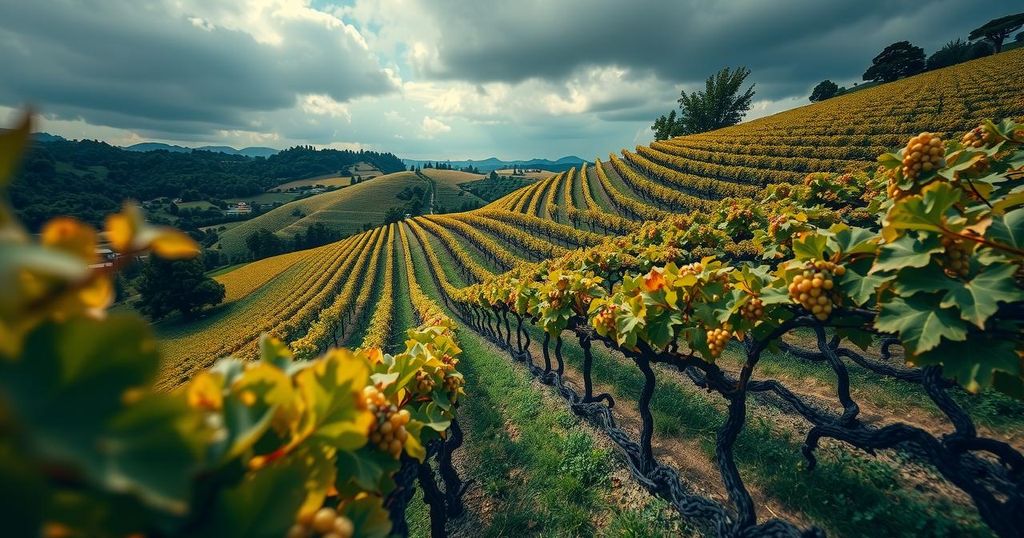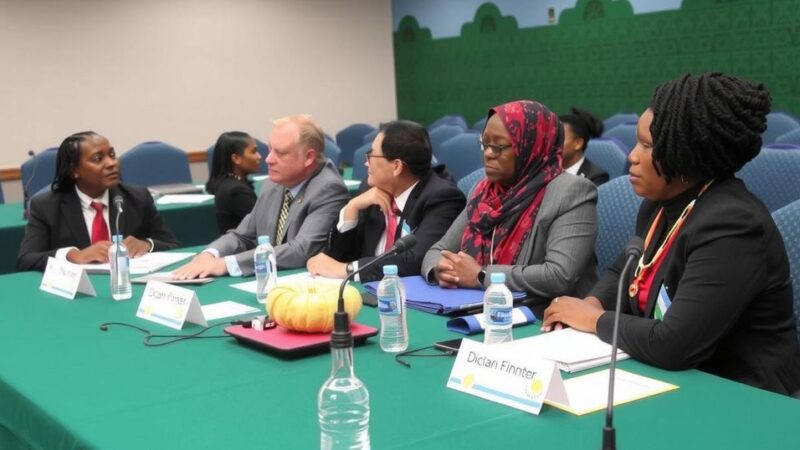Global wine production is anticipated to drop to its lowest level since 1961 in 2024, influenced primarily by climate change. The International Organisation of Vine and Wine (OIV) reports a decline to a range of 227-235 million hectolitres, with Italy leading production despite adverse weather. The impacts of climate change are evident across various regions, calling for urgent adaptive measures in the industry.
In 2024, global wine production is projected to reach its lowest level since 1961, largely due to climate change, according to the International Organisation of Vine and Wine (OIV). This downturn highlights the significant impact of adverse climatic conditions on winemaking, with a forecasted drop to between 227 and 235 million hectolitres, averaging 231 million hectolitres, which represents a 2% decline from 2023. Despite these challenges, Italy continues to lead in production, followed closely by France and Spain.
While most of the world grapples with these climatic adversities, some regions such as the United States, Hungary, Georgia, and Moldova have benefitted from more favorable weather, illustrating a disparity in production outcomes. Specific weather events, including heavy rains, hailstorms, and vine diseases, have caused considerable damage in prominent wine-producing nations. In France, for instance, production fell to 36.9 million hectolitres, yet high-quality wines are anticipated from select regions. Meanwhile, Italy reported a 7% increase in production, totaling 41 million hectolitres, whereas Spain is expected to see an 18% rise despite facing its own agricultural challenges.
The challenges faced by countries like Romania and the Czech Republic underscore the severity of climate change’s impact on viticulture, with production declines exceeding 20% in these areas. The destructive floods caused by Storm Boris in September epitomize the vulnerabilities of the wine industry in the context of increasingly unpredictable weather patterns. As the industry continues to adapt, the findings from the OIV illustrate the urgent need for systemic changes to mitigate the effects of climate change on this historic agricultural sector.
The wine industry has historically been affected by climate variability, but recent trends indicate a more pronounced and detrimental effect due to climate change. The International Organisation of Vine and Wine (OIV) serves as a key reporting body, providing insights into global production levels and trends. With climate extremes such as severe storms, droughts, and unusual temperature fluctuations, many wine-producing regions face significant operational and production challenges. As the consequences of climate change continue to unfold, understanding its effects on wine production has become increasingly crucial for both producers and consumers alike.
In summary, the forecast for global wine production in 2024 indicates a historic low driven by the escalating impacts of climate change. While some countries have managed to maintain or increase their production levels, the overall industry faces significant threats from erratic weather patterns and associated agricultural challenges. The findings reinforce the necessity for the wine sector to prioritize adaptive strategies to ensure its resilience against ongoing climatic disruptions.
Original Source: www.senenews.com






